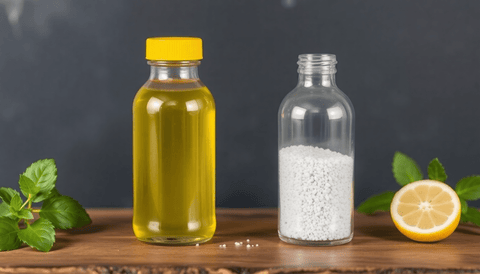Magnesium citrate vs bisglycinate: this page presents a clear, side-by-side look at two common magnesium supplement forms. The focus is on structural differences, how each form dissolves, and how those properties relate to absorbability and product behavior. The goal is to help you compare options without relying on health claims, so you can choose the form that fits your preferences and product needs. Throughout, you’ll see a concise comparison that emphasizes the form and composition rather than outcomes. Magnesium citrate is a salt made from magnesium and citric acid. In solution, it tends to dissociate into magnesium ions and citrate, with relatively high solubility in water. Magnesium bisglycinate, by contrast, is a chelate in which magnesium is chemically bound to two glycine molecules. This magnesium citrate vs bisglycinate comparison highlights how the chelated structure can influence dissolution and the way magnesium is released, which is central to understanding how each form behaves in practice. From a product perspective, citrate versions are commonly found as powders or capsules, while bisglycinate versions are often offered as capsules or tablets with the glycine-bound form. The differing chemistry can translate into practical differences such as solubility in a beverage, stability in formulation, and the range of excipients used by manufacturers. Price and availability also vary, so it is useful to review the exact magnesium content per serving and the form listed on the label when weighing magnesium citrate vs bisglycinate. Either form can be a reasonable option depending on product specifics and personal preference. To compare magnesium citrate vs bisglycinate effectively, examine product labels and any independent data on the formulation, including magnesium content, the salt or chelate form, and added ingredients. Consider how the product is presented (powder, capsule, or tablet) and the cost relative to magnesium content. This approach provides a straightforward way to evaluate magnesium citrate vs bisglycinate and select a suitable option based on the available information.

